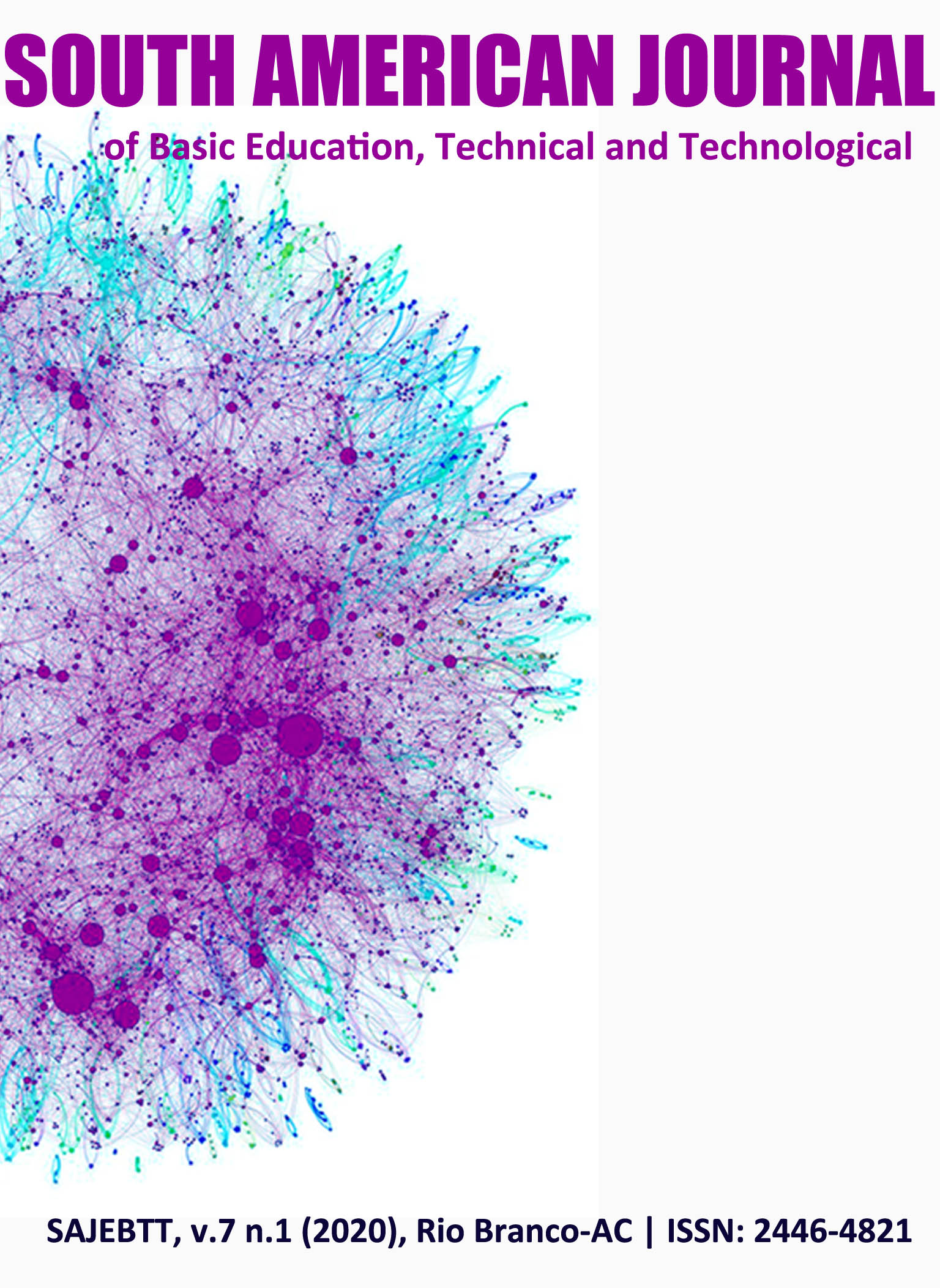Avaliação Externa: o processo avaliativo em larga escala numa escola pública de Rio Branco/AC
Keywords:
Avaliação em larga externa. Prova Brasil. Orientações externas.Abstract
The research was outlined with a qualitative approach, through the analysis of documents produced in the school unit and in the federal and state spheres, in addition to documents of curricular guidelines of the state of Acre, as well as the references of the matrix that guides the Prova Brasil (Brazil Test) and the applying of a questionnaire for the pedagogical coordination, principal and teacher of the 5th grade classes. As study subjects, we chose to verify, what marks / impacts the large scale evaluation is making in the school and in its contributors to formation and how are the school management, the pedagogical coordination and the teacher of the 5th grade classes reacting to these external evaluation processes. The place where the information to support this research work was collected, showed strong signs of valuing the reach of an expressive rate as the results achieved in 2013 and 2015 placed the school on the top of the rank established among schools in the municipality of Rio Branco, in Acre. We understand that the school practices endorsed by external guidelines linked to Prova Brasil, put in place curricular practices that, perhaps, could enable other forms of learning and the use of reading, writing and mathematical calculation, in addition to favour other areas of scientific and popular knowledge of the region in which the school is inserted, keeping in mind that students have different experiences and learning situations with their families and communities.
Downloads
References
[2] LÜDKE, Menga. Pesquisa em educação: abordagens qualitativas. São Paulo: EPU, 1996.
[3] QUIJANO, Aníbal. Colonialidad y modernidad. In BONILLO, Heraclio (comp.) Los Conquistados. Bogotá: Tecer Mundo Ediciones; FLACSO, 2005. pp. 437-449.
[4] DUSSEL, Henrique. Europa, modernidade e eurocentrismo. In: A colonialidade do saber: eurocentrismo e ciências sociais- perspectivas latino-americano. Buenos Aires: CLACSO, 2005. http://biblioecavirtual.clacso.org.ar acessado em 20/11/2019. pp. 24-32.
[5] MIGNOLO, Walter. Desobediência epistêmica: retórica de la modernidade, lógica de la colonialidad y gramática de la descolonialidad. Argentina: Ediciones del signo. 2005.
[6] BRASIL. Lei nº 9.394/96 de 20 de dezembro de 1996. Estabelece as Diretrizes e Bases da Educação Nacional. Diário Oficial da União, Brasília, 23 de dezembro de 1996.
[7] BRASIL.. Parâmetros curriculares nacionais: introdução aos parâmetros curriculares nacionais. Brasília : MEC/SEF, 1997.
[8] BRASIL. Portaria Ministerial de nº 931/2005. Institui o Sistema Nacional de Avaliação da Educação Básica (SAEB).
[9] BRASIL. Resolução nº 7, de 14 de dezembro de 2010. Fixa as Diretrizes CurricularesNacionaisparaoEnsino Fundamental de 9 (nove) anos.
[10] ACRE. Secretaria de Estado de Educação do Acre. Cadernos de orientação curricular: orientações curriculares para o ensino fundamental. Rio Branco, AC.: SEE, 2009.
[11] BRASIL. Portaria nº 867 de 4 de julho de 2012. Institui o Pacto pela Educação na Idade Certa e as ações do Pacto e define suas diretrizes gerais. Disponível em: www.pacto.gov.br. Acesso em 15/11/2019.
[12] QUIJANO, Aníbal. “Colonialidad del Poder y Clasificacion Social”. Journal of Worldsystems Research, vi. 2, summer/fall. 2010.
[13] GENTILI, Pablo A.A. A falsificação do consenso: simulacro e imposição na reforma educacional do neoliberalismo. Petrópolis, RJ: Vozes, 1998.
[14] DOLL, Jr. William. Currículo: uma perspectiva pós-moderna. Porto alegre: Artes Médicas, 1997.
[15] BRASIL. Plano Nacional de Educação (2001-2010). Senado Federal. Brasília, DF: UNESCO, 2008.
[16] BRASIL. Plano Nacional de Educação 2014-2024: Lei 13.005, de 25 de junho de 2014, que aprova o Plano Nacional de Educação (PNE) e dá outras providências. Câmara dos Deputados. Brasília, DF: Edições Câmara, 2014.
[17] LANDER. Edgardo. (org.). A Colonialidade do saber: eurocentrismo e ciências sociais. Perspectivas latinoamericanas. Colección Sur Sur, CLACSO, Ciudad Autónoma de Buenos Aires, Argentina, 2005.
[18] BONAMINO, A. M. C. O Sistema Nacional de Avaliação da Educação Básica (Saeb): referências, agentes e arranjos institucionais e instrumentais. 2000. 120 f. Tese (doutorado em Educação) PUC/Rio, Rio de Janeiro.
[19] SANTOS, Boaventura. (org.) Epistemologias do Sul. Coimbra, Portugal: Edições Almedina, 2010.










